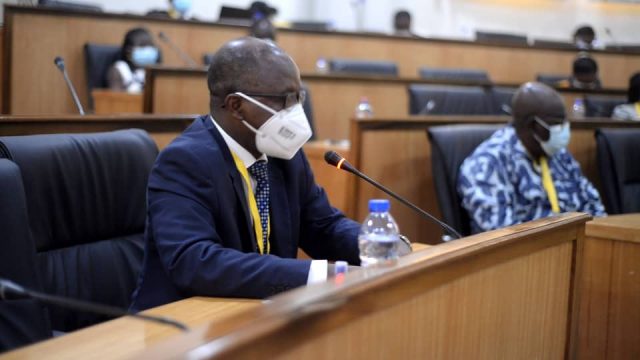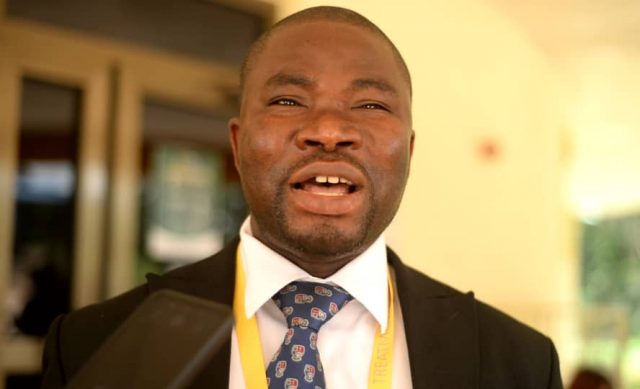
Chronic diseases account for 94, 000 preventable deaths annually. This figure represents approximately 43% of all deaths in Ghana and 71% of all deaths worldwide. This situation has become a cause of concern for the Society of Family Physicians of Ghana (SOFPOG).
The family Doctors who celebrated the World Family Doctor Day on 19th May, 2021 believe they can be very instrumental in preventing these deaths when given the right support.
A Statement signed by the Organizing Secretary of SOFPOG; Dr. Fred Bedzrah explained that the support they seek include scholarships, logistical support for training and incentives for family physicians who serve in deprived areas. Dr. Bedzrah explained to rawgist.com’s Bernard Buachi the threat posed by chronic diseases and Ghana’s current situation.
“We are also calling on doctors on stakeholders to consider adding a family medicine rotation to the housemanship period” the statement said.
This year’s Family Doctor Day, held at the Kwame Nkrumah University of Science and Technology (KNUST), Kumasi was on the theme: Building the Future with Family Doctors in the management of Chronic Medical Conditions.

Dr. Emmanuel Ati is President of SOFPOG
President of SOFPOG; Dr. Emmanuel Ati expressed concern about the inadequate number of family physicians in Ghana and feared the country’s healthcare delivery will suffer if nothing is done to shore up the numbers and ensure that family Doctors are placed in district hospitals throughout the country.
Presidential Advisor on Health; Dr. Anthony Nsiah Asare observed that Family Physicians have been trained to be the gatekeepers of healthcare delivery, “providing healthcare from cradle to grave” and explained that they possess the skills to adequately identify and manage chronic medical condition as early as possible while coordinating care and instituting prevention measures for the individual, family and the community.
He also noted the government’s commitment to attaining the Universal Health Coverage (UHC) and SDG by 2030 and explained that family Doctors have a significant role to play.
He advised Family Physicians to focus more on promoting and ensuring effective communication with their clients. “You should engage your patients and their families by taking time to ensure that they understand their diagnosis, treatment, and medication plans” he advised.
Please read SOFPOG’s press statement below:
PRESS STATEMENT
BUILDING THE FUTURE WITH FAMILY DOCTORS IN THE MANAGEMENT OF CHRONIC MEDICAL CONDITIONS
The Society of Family Physicians of Ghana (SOFPOG) which is a member of the World Organization of Family Doctors (WONCA) celebrates The World Family Doctor Day every year on May 19. This important day was set aside in 2010 by WONCA to highlight the role and contributions of family doctors in health care systems globally.
WFDD is the perfect opportunity to acknowledge the central role of Family Doctors in the delivery of personal, comprehensive and continuing health care for all patients. It’s also a chance to celebrate the progress being made in family medicine and the special contributions of primary care teams globally.
The theme for this year’s World Family Doctor Day celebration is:
“BUILDING THE FUTURE WITH FAMILY DOCTORS IN THE MANAGEMENT OF CHRONIC MEDICAL CONDITIONS”
This theme was chosen to align with the theme by WONCA, “BUILDING THE FUTURE WITH FAMILY DOCTORS”.
According to the World Health Organization, Chronic diseases are estimated to account for 71% of all deaths globally. Numerically, this translates to approximately 41 million deaths annually, with 15million of these deaths occurring in people aged 30 – 69 years. Unfortunately, 85% of these deaths occurs in low- and middle-income countries like Ghana. In Ghana, current data indicates that chronic diseases account for 94,000 preventable deaths annually (approximately 43% of all death in Ghana). These chronic medical conditions include cardiovascular diseases, cancers, chronic respiratory diseases (such as chronic obstructive pulmonary disease and asthma) and diabetes.
Chronic diseases affect an individual’s health over a long period of time and as such, there is the need to build a health system that addresses the health challenges of individuals living with these conditions to enable them live life to the fullest. These challenges include the shock, grief and helplessness felt after an initial diagnosis is made, chronic unbearable pain, time commitment for treatment regimen, lifestyle changes, the burden of care for both the affected individual and the family, high cost of treatment modalities and the health system environment that can at times be very depressive for these individuals. Therefore, the care of individuals with chronic conditions requires a model of care that provides higher quality chronic illness management within primary care.
Key in the long-term management of these patients at the primary care level is the herculean task of providing self-management training and support services. Such services development requires the individual to be informed, activated and empowered to play key roles in managing their own health. Furthermore, primary care services organize and mobilize internal and community help resources that teach skills needed to carry out medical regimens, guide health behavior change, and provide emotional support for these patients and again ensuring that these self-management and support services run a continuous course.
Primary care services do not only provide first contact care but also provide continuous, comprehensive, coordinated, and collaborative care, which is patient-centered and community-oriented leading to the establishment of a trusting doctor-patient relationship over time.
At the heart of the provision of these services are skillfully trained, knowledgeable, patient-centered and community-oriented Family Physicians, who employ evidence-based decision support systems in the early detection, screening, treatment and palliation of these chronic conditions. Family Physicians are trained to redesign the health delivery system to suit the care of these chronic conditions through the creation of practice teams with clearly defined role, regular and proactive planned visits that incorporate patient goals and the provision of the care that the patients understand and that agree with their cultural backgrounds.
With our position as a gatekeeper in the healthcare system, family practice enables cost effective healthcare with standard quality to all patients. This is why we are calling on all to build the future of healthcare with us especially in dealing with the increasing burden of chronic medical conditions worldwide.
SOFPOG is therefore calling on government, NGOs, corporate bodies and other stakeholders to support the training of family physicians in Ghana. This support can be provided through scholarships, provisions of logistics for training and incentives for family physicians who serve in deprived areas.
We are also calling on doctors on stakeholders to consider adding a family medicine rotation to the housemanship period.
This will enable newly qualified medical officers practicing in primary care to be better able to deal with the unique set of challenges that come with the terrain and also whip up their interest in the field of family medicine.
What do you think about this piece? Share your comment in the comment thread and share the story using the social media buttons above. You may reach the editor on 0249579664. Thank you.





